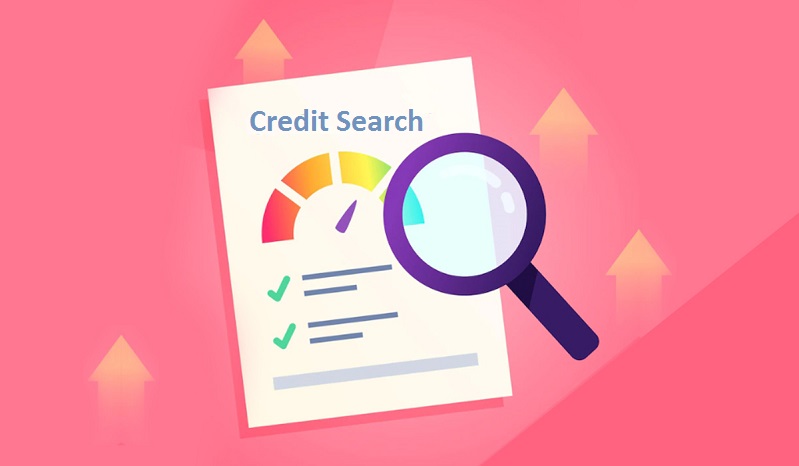If you have applied for loans or credit cards etc., before, you have pretty much idea about credit search. It does not matter what type of loans you have applied for; credit checks are a fundamental part of the decision-making process.
These checks are mandatory even when you want to avail of broadband services or get a mobile phone. It reveals how you manage your finances and helps the finance provider ensure whether to provide you with the required support.
A credit search gives information about your trustworthiness from a financial perspective. Your credit report containing all the details about your financial history will play a key role in this type of assessment. Credit reference agencies like Equifax, TransUnion and Experian add information to your credit record.
Fetching data about your credit history over the past six years is possible for third parties. Your credit record stores information about your debts, the previous credit agreements you were part of and court judgements (if in case you have any). A loan provider can look into it to ensure the occurrence of missed payments in the past.
This process of verification is mainly credit checks. If you want to get an elaborate idea, keep reading the blog.
Know-how of the process of credit check
When a service provider or company analyses your credit report, it is a credit check. It is as simple as that and has no complex definition. Now, the type of assessment might vary from lender to lender.
Therefore, some will perform a soft check, while others might prefer a hard assessment. Both have different levels of repercussions. The revelation is more critical for the loan provider.
What do you mean by a soft credit check?
A soft credit check is a lighter analysis of your credit background. It unveils limited information about your past financial behaviours based on a few key criteria. Therefore, it is not a complete examination of your credit history.
You can also hear it by other names like a quotation search, soft inquiry, soft search or even a soft pull. It, in fact, gives you a glimpse of the basic credit information available on your credit report.
This search will not reflect on your credit records and, thus, will not surface during the next search. Clearly, your credit scores imbibe no impact because of it. It will have zero influence on the future credit decisions that you might face in the future.
What are the instances that induce soft checks to happen?
Are you wondering when you will have to come across this type of check? Maybe, you have already encountered them unknowingly. These instances are:
- Self-checking of credit report
- During verification of your identity
- When applying for loans with a direct lender
- While taking out an insurance policy
- While renting a new property
- To get access to any service
- Getting approval for credit cards
- Before joining a new job in the case of some employers
The main purpose behind this check is to validate your financial capability. It helps the lender, landlord, employer etc., to understand if you can repay on time.
Before you get confused about the information that comes out after a soft search, you must know a portion of your financial profile will be accessible name, address, date of birth, credit agreements you are holding and status of electoral roll.
However, you can get access to your complete credit history while you are self-checking your credit history. Although it is a full credit check, it will appear as a soft check in your credit profile.
What are hard credit checks?
Hard credit checks are complete verification of your credit history. Your credit report will instantly record information about these checks without fail. The other names of it are hard to search, hard inquiry or hard pull.
Since your credit reports will hold its occurrence, it will impact your ability to borrow. Thus, it clearly leaves its footprint on your credit profile and can do damage to your future opportunities. The duration of its impact might remain for at least 12 months.
Everyone who reads your credit reports will come to know about it at that very moment. For this reason, it can influence the decisions of the lender also.
What are the instances that induce hard checks?
This process includes a complete review of your credit report. This type of verification affects your credit scores. You must know where you might encounter them.
- At the time of applying for a mortgage or overdraft facilities
- Taking out car finance from a traditional lender
- Signing in for a monthly mobile phone contract
Although the initial impact of these checks will be on your credit scores, consistent and responsible handling of various accounts is fruitful for someone struggling with bad credit scores.
The outcome of these checks showing a positive credit history lined with on-time payments will motivate the lender to make a positive decision.
Apart from the information that a soft search reveals, these checks uncover missed payments or defaults, the number of times a hard search has been performed on your profile over the last 12 months, and detailed information about the credit limit of loans and mortgages.
Any finance provider can easily find out about the occurrence of bankruptcy in your case from these checks. It also encloses your status if you have financial connections with any other person. It also depicts any instance where you might be a victim of fraud or scam.
Please note that your credit file will hold the information for six years. This assessment is a validation of your credit history and your bank statements. Therefore, any lending institution can run a hard check on you. However, they cannot get any information on how much you earn or whether you have any criminal record.
| Vital pointers about a hard and soft check Credit checks help in evaluating lending risk. A few pointers that must grab your attention are: · Any bank, lender, mortgage provider, insurance company, employer, utility or service provider, landlord etc., perform it to have a bird’s eye view of your financial behaviour to assess the chances of successful payments in the future. · The main reason for conducting a credit check is to consider your borrowing history either fully or partially. · Unlike a hard credit check, failure in a soft credit check does not result in straightaway rejection from the lender. · You can avoid hard checks by preventing applying for any credit frequently. Take advantage of the pre-approval facility to refer to the loan rates and terms before actually borrowing. · Soft checks are an integral part of identity checks that many companies conduct ahead of deciding if they should do business with you or not. |
The bottom line
Credit checks are critical to visualise your financial behaviour to the extent that actually decides the type of checks. This blog must have been able to enlighten you about the significance and effect of these checks. The outcomes can ascertain the type of offer you will obtain.
Ahead of facing these checks, make sure that you are well aware of your scores. It will help you prevent the chances of receiving a denial from the lender.

Mark Williams works as one of the Loan Advisors at a direct lender firm, Onestoploansolution. He has been working with the lender for about 15 years. He has been known to facilitate his employer in remarkable ways from writing to consulting and whatnot. He is a professional who wants to explore more of the UK financial market, the loan products and how customer requirement changes with time.






